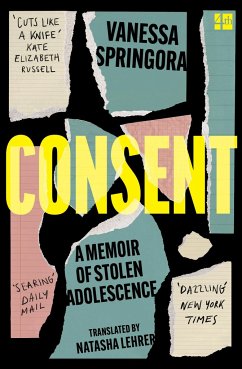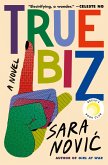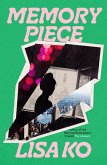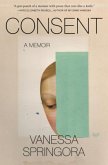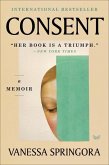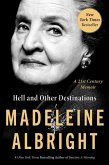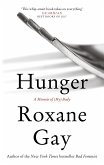The devastating and powerful memoir from a French publisher who was abused by a famous writer from the age of thirteen 'Dazzling' New York Times'A gut-punch of a memoir with prose that cuts like a knife' Kate Elizabeth Russell, author of My Dark Vanessa
Hinweis: Dieser Artikel kann nur an eine deutsche Lieferadresse ausgeliefert werden.
Hinweis: Dieser Artikel kann nur an eine deutsche Lieferadresse ausgeliefert werden.
"Lucid and nuanced . . . [Consent] will speak to trauma survivors everywhere." - Los Angeles Review of Books
"Consent is that elegantly laid trap, a memoir that asks sharp questions about desire, literature, and a culture that fetishizes female youth and inexperience over female art. " - The Paris Review
"Consent [is] rapier-sharp, written with restraint, elegance and brevity." - The Times (London)
"[Consent] has something steely in its heart, and it departs from the typical American memoir of childhood abuse in exhilarating ways." - Slate
"Consent is a Molotov cocktail, flung at the face of the French establishment, a work of dazzling, highly controlled fury...By every conceivable metric, her book is a triumph." - New York Times
"A piercing memoir about the sexually abusive relationship she endured at age 14 with a 50-year-old writer. . . . This chilling account will linger with readers long after the last page is turned." - Publishers Weekly
"A fierce account from a woman hoping to wrest her story back. Recommended Reading." - Library Journal
"Springora's lucid account is a commanding discussion of sexual abuse and victimization, and a powerful act of reclamation." - Booklist
"A chilling story of child abuse and the sophisticated Parisians who looked the other way...[Springora] is an elegant and perceptive writer." - Kirkus Reviews
"One of the belated truths that emerges from [Consent] is that Springora is a writer. . . . Her sentences gleam like metal; each chapter snaps shut with the clean brutality of a latch." - The New Yorker
"In elegant, focused prose, fluidly translated by Natasha Lehrer...With admirable restraint - another author might have been tempted to veer off into disquisitions on De Sade, Balthus, or Nabokov - Springora describes how Matzneff expertly manipulated her into believing she had as much agency and power as he did." - The Guardian
"Springora's style is incisive and she keeps readers hooked with short chapters depicting a post-1968 libertarian establishment that lets her down[.]" - The Financial Times
"Even if he is acquitted, Springora has managed to exact some revenge by capturing G, and all of his terrible behavior, forever in these erudite, incriminating pages." - New York Journal of Books
"[Consent] is really about power; who we give it to, and where it should be curtailed. It is also about correcting an imbalance." - Sunday Times (London)
"By coldly dismantling the mechanism, the cogs and the collusions, Vanessa Springora transcends the personal framework and questions society as a whole. In this, Consent is a book that counts, far beyond testimony." - Nicole Grudlinger
"The story delivered is reminiscent of that of a pact with the devil and the reference to fairy tales (Bluebeard in particular) highlights the importance of the theme of sexual predator in literature, including children's literature. Love must be there in wonder; in the case of the sexual predator, the stupor is not that of joy but that of Evil. To write it is to exorcise it, in the strong sense; to receive this testimony is to accompany this disenchantment and to get out of the state of torpor in which conformism, indifference or complacency always threaten to plunge us." - Elodie Pinel, La Revue Études
"[Springora] is not writing this memoir solely for herself; she's writing it as a plea to stop normalizing the type of toxic masculinity that is often excused because the male is a 'great artist.'...Consent is powerful and tragic, and one of the most important testimonies on this subject ever written." - World Literature Today
"Consent is that elegantly laid trap, a memoir that asks sharp questions about desire, literature, and a culture that fetishizes female youth and inexperience over female art. " - The Paris Review
"Consent [is] rapier-sharp, written with restraint, elegance and brevity." - The Times (London)
"[Consent] has something steely in its heart, and it departs from the typical American memoir of childhood abuse in exhilarating ways." - Slate
"Consent is a Molotov cocktail, flung at the face of the French establishment, a work of dazzling, highly controlled fury...By every conceivable metric, her book is a triumph." - New York Times
"A piercing memoir about the sexually abusive relationship she endured at age 14 with a 50-year-old writer. . . . This chilling account will linger with readers long after the last page is turned." - Publishers Weekly
"A fierce account from a woman hoping to wrest her story back. Recommended Reading." - Library Journal
"Springora's lucid account is a commanding discussion of sexual abuse and victimization, and a powerful act of reclamation." - Booklist
"A chilling story of child abuse and the sophisticated Parisians who looked the other way...[Springora] is an elegant and perceptive writer." - Kirkus Reviews
"One of the belated truths that emerges from [Consent] is that Springora is a writer. . . . Her sentences gleam like metal; each chapter snaps shut with the clean brutality of a latch." - The New Yorker
"In elegant, focused prose, fluidly translated by Natasha Lehrer...With admirable restraint - another author might have been tempted to veer off into disquisitions on De Sade, Balthus, or Nabokov - Springora describes how Matzneff expertly manipulated her into believing she had as much agency and power as he did." - The Guardian
"Springora's style is incisive and she keeps readers hooked with short chapters depicting a post-1968 libertarian establishment that lets her down[.]" - The Financial Times
"Even if he is acquitted, Springora has managed to exact some revenge by capturing G, and all of his terrible behavior, forever in these erudite, incriminating pages." - New York Journal of Books
"[Consent] is really about power; who we give it to, and where it should be curtailed. It is also about correcting an imbalance." - Sunday Times (London)
"By coldly dismantling the mechanism, the cogs and the collusions, Vanessa Springora transcends the personal framework and questions society as a whole. In this, Consent is a book that counts, far beyond testimony." - Nicole Grudlinger
"The story delivered is reminiscent of that of a pact with the devil and the reference to fairy tales (Bluebeard in particular) highlights the importance of the theme of sexual predator in literature, including children's literature. Love must be there in wonder; in the case of the sexual predator, the stupor is not that of joy but that of Evil. To write it is to exorcise it, in the strong sense; to receive this testimony is to accompany this disenchantment and to get out of the state of torpor in which conformism, indifference or complacency always threaten to plunge us." - Elodie Pinel, La Revue Études
"[Springora] is not writing this memoir solely for herself; she's writing it as a plea to stop normalizing the type of toxic masculinity that is often excused because the male is a 'great artist.'...Consent is powerful and tragic, and one of the most important testimonies on this subject ever written." - World Literature Today

